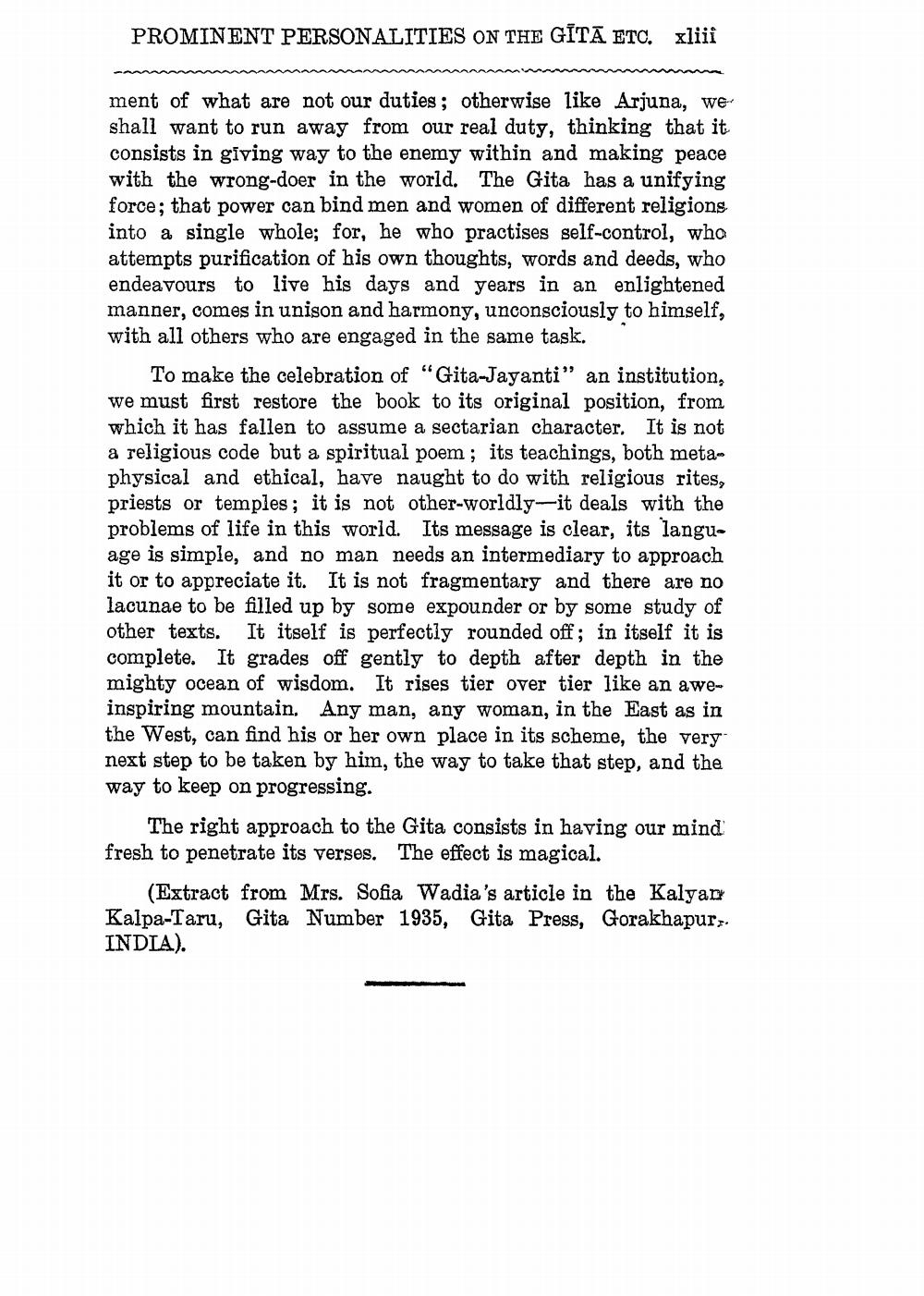________________
PROMINENT PERSONALITIES ON THE GITĀ ETC. xliii
ment of what are not our duties; otherwise like Arjuna, we shall want to run away from our real duty, thinking that it consists in giving way to the enemy within and making peace with the wrong-doer in the world. The Gita has a unifying force; that power can bind men and women of different religions. into a single whole; for, he who practises self-control, who attempts purification of his own thoughts, words and deeds, who endeavours to live his days and years in an enlightened manner, comes in unison and harmony, unconsciously to himself, with all others who are engaged in the same task.
To make the celebration of "Gita-Jayanti” an institution, we must first restore the book to its original position, from which it has fallen to assume a sectarian character. It is not a religious code but a spiritual poem ; its teachings, both metaphysical and ethical, have naught to do with religious rites, priests or temples; it is not other-worldly-it deals with the problems of life in this world. Its message is clear, its language is simple, and no man needs an intermediary to approach it or to appreciate it. It is not fragmentary and there are no lacunae to be filled up by some expounder or by some study of other texts. It itself is perfectly rounded off; in itself it is complete. It grades off gently to depth after depth in the mighty ocean of wisdom. It rises tier over tier like an aweinspiring mountain. Any man, any woman, in the East as in the West, can find his or her own place in its scheme, the very next step to be taken by him, the way to take that step, and the way to keep on progressing.
The right approach to the Gita consists in having our mind fresh to penetrate its verses. The effect is magical.
(Extract from Mrs. Sofia Wadia's article in the Kalyar Kalpa-Taru, Gita Number 1935, Gita Press, Gorakhapur, INDIA).




